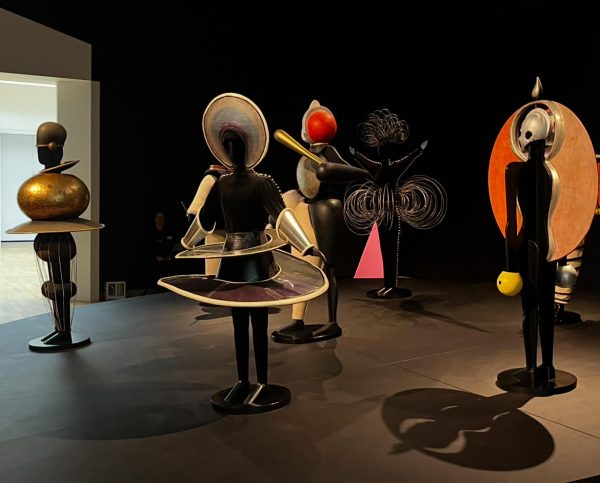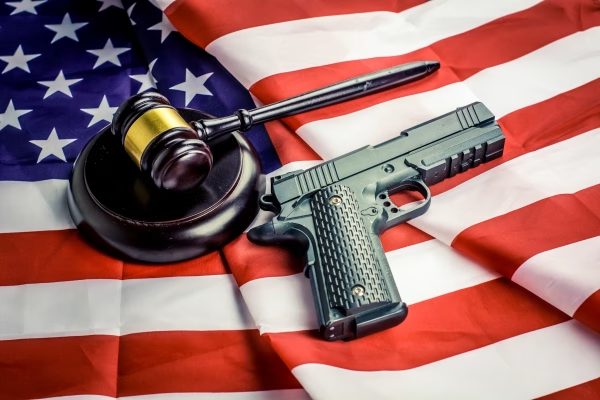Do Politics Belong in Entertainment?

Photo courtesy of bradleyscout.com
Today many believe that entertainment such as movies, shows, or video games shouldn’t be political. While I somewhat understand the want for pure escapism, saying all of fiction should be political is ludicrous. Furthermore, there seems to be a large cognitive dissonance for some people because they’ll attack something for being political, but will then love another piece of media that is also political.
A prime example is the newest released Marvel movie, “Eternals”. Because the movie features a same-sex relationship, it has received significant backlash and review bombing specifically because it’s supposedly “forcing an agenda.” Then, many of the same people will go and say, “Iron Man,” a movie about a billionaire making amends because of his actions causing endless violence and war crimes, is a great movie.
You can’t have it both ways; if you’re against politics in one Marvel movie, then you should be against them in all of them. This level of disconnect has permeated throughout every corner of entertainment, whether it be movies, comics, or video games. So do people like this have a point that politics shouldn’t be in entertainment? Absolutely not. Movies, shows, games, comics, novels, etc., are art, and art is supposed to convey a message to the audience, and entertainment has been starkly political for hundreds of years.
Yes, fictional entertainment can be used for escapism, but boiling that down to its only purpose is such a reductive and borderline disrespectful idea. Reducing these mediums to just escapism is a limited mindset that completely disregards the impact and purpose storytelling can have. To be frank, though, a lot of people unnecessarily conflate politics with diversity and representation.
In “The Last of Us Part II” the main character is a lesbian and the game also features a prominent trans character. The game has deeply rooted themes about the effects of violence and how it can utterly destroy people both physically and psychologically, but some angry gamers just see LGBTQ representation and screech that the game is too political. Merely featuring LGBTQ characters or characters from other marginalized groups is not political, and it frankly says more about the people who get mad at it than the actual creators themselves. No, having a trans character in a video game is not “shoving politics down your throat,” especially since trans characters are exceptionally hard to find in video games.
The same people who will call “Last of Us Part II” political often then will use “Ghost of Tsushima” to show why Part II supposedly sucks when that game has much more overtly political themes. “Ghost of Tsushima’s” entire story is about the dangers of imperialism and the effects it has on affected countries, but yes, the game with diversity is somehow the political one.
Or how about “Red Dead Redemption II”? This game also has overtly political themes. It has capitalist exploitation of the poor, racism, women’s rights, anti-industrialism, political corruption, exploitation of Native Americans, and more, yet somehow this is seen as one of the greatest games of all time by some of these people. It’s clear this issue has nothing to do with politics because they will blindly consume extremely political media.
Over the last decade, both Marvel and DC have been introducing more diverse superheroes into their pantheons and because of this, some people have gotten mad at them. Most recently, Jon Kent, the son of Clark Kent, became Superman, and he also came out as bisexual and has a boyfriend. In August, Tim Drake, who has been Robin on and off for 32 years in the comics, was revealed to also be bisexual. In both of these instances, people, many of whom don’t even read the comics, got mad, using the popular dodge of “don’t change existing characters.” But Jon Kent has only been around for six years and has only been a major player for five. I’d hardly call that “changing an existing character” if he’s been around for so little time with no real love interests until now.
What’s possibly most odd and damning about this is that people completely ignore this for other major characters. In 2015 Catwoman was revealed to be bisexual, Harley Quinn and Poison Ivy are bisexual, and the heart of DC’s trinity, Wonder Woman, is also bisexual along with her mother Hippolyta.
All of these characters are household names, yet no one bats an eye about these characters.ut it’s somehow bad with Jon and Tim? If you look at the list above, it’s easy to detect a pattern; all the characters are women. Take this with a grain of salt of course, but this just maybe, possibly shows that there is a sexual bias when it comes to LGBTQ representation in comics and media as a whole.
You may say, “OK but these are just people on the internet; it’s not like they really change anything,” but they actually do and it has had an impact on representation. After the original “Mass Effect” got heat from Fox News for depicting romantic relationships (I know, the horror) the developers for the sequel, Bioware, changed a major character’s sexuality late into development in order to avoid the gaze of media organizations like Fox News. Furthermore, in the “Star Wars” sequel trilogy, the character Finn’s role in the story was minimized to appeal to China to the point where he was even shrunk in the poster.
As I alluded to before, simply having female, LGBTQ, and/or people of color characters in entertainment is not political. Despite what some people may think these groups exist in real life and having them represented in media is not a bad thing. It shows us new perspectives and also gives people a sense of validation when they see people like them on the silver screen, TV, or in video games. There’s a reason movies like “Black Panther,” “Wonder Woman,” and “Shang Chi” were such a big deal.
But what about politics themselves? Well, they too should also be in entertainment. Simply put, if you were to completely remove politics in entertainment you would literally have no stories at all to tell. Even stories you might not think are political are almost always deeply enshrined in politics and real-world issues.
Just look at the original “Star Wars” trilogy. Most people would agree that it’s a pretty universally loved movie trilogy that is inoffensive to most audiences (unless you are one of those “Greedo shot first” people), but it is actually deeply enshrined in real-world politics. Just think about it; the trilogy focuses around a group of freedom fighters fighting to overthrow a fascistic government with soldiers quite literally named after German soldiers in World War I and II.
“It was really about the Vietnam War, and that was the period where Nixon was trying to run for a [second] term, which got me to thinking historically about how do democracies get turned into dictatorships?” George Lucas said to the Chicago Tribune “Because the democracies aren’t overthrown; they’re given away.”
Let’s turn our eyes to video games. Many classic video games are also deeply entrenched in political ideas. “Bioshock” is a critique of Ayn Rand’s idea of objectivism. “Mass Effect” tackles numerous issues such as sexism, discrimination, racism, xenophobia, and more. “Grand Theft Auto V” is a critique and satire about modern society. “Skyrim” depicts a conflict between an imperialist empire and a group of rebels fighting for religious freedom with a little racism sprinkled in. “Resident Evil” tackles corruption, unethical experimentation, greed, lust for power, and even eugenics. Finally, “NieR Automata” delves into how people find meaning and purpose in forming different societies and governments such as monarchies, anarchies, religious cults, or democratic communities and also heavily delves into numerous philosophical ideas such as Nietzsche’s idea of nihilism and Jean-Paul Sartre’s idea of existentialism.
I could extend this list even more, but you get the gist. Injecting political ideas in games is not a new concept in the slightest and they have, in fact, massively contributed to what makes these worlds feel so alive and what makes many of these stories so poignant. You can find political ideas in nearly every single fictional story in history and they are ideas that many don’t even realize at first glance. Even the idea of what is good and what is evil is an inherently political topic.
Art imitates life and in a world where politics seeds itself into almost every aspect of life, art will inevitably contain it as well. Without politics and political ideas you would have empty husks of stories with nothing to say. Regardless of your political ideology, having political ideas in entertainment is important because stories help to separate us from our physical world and can help us see new ideas and perspectives we otherwise wouldn’t have seen.







Joe Biden • Dec 2, 2024 at 10:04 am
Iron man is just a better movie than Eternals, and was not pushing woke BS down our throats like Disney has been doing for the past four years.
Ariell Choy • Aug 27, 2024 at 5:17 pm
Precisely my point! It’s not that politics is not a part of Hollywood or the entertainment industry, as a whole. It’s more that the controllers of Hollywood decide what politics we should talk about. It’s either leave politics out of Hollywood completely or leave it all. We should not be picky-choosy about what gets discussed. The entire point of music and literature and film is propaganda, the promotion of the seven deadly sins, politics and new-ageism (anti-religion). Not to mention there is payola, corruption (dirty deeds done under the table), backstabbing, racism, colorism, sexism, ageism and so much more. Anyone who refuses to accept this – is clearly not living in the real world.